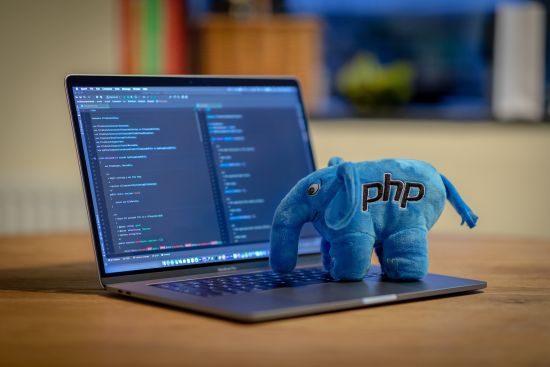While opinions on the best programming language for web development vary, and more than often PHP gets a bashing for the same. But PHP has maintained its popularity due to its extensive documentation, vast community support, and seamless integration with web servers, making it a strong choice for building dynamic and interactive websites. Its wide adoption and continuous updates have contributed to a rich ecosystem of frameworks and tools that cater to various web development needs, solidifying PHP’s position in the web development landscape.

To code better in PHP, there are several steps you can take:
Use a modern version of PHP. PHP is constantly evolving, and newer versions of the language include new features and improvements that can make your code more efficient and easier to write. Consider using the latest stable version of PHP, and regularly update to newer versions as they are released.
Use a modern PHP framework. A modern PHP framework can provide a solid foundation for your code, and can help you to structure your code in a more organized and maintainable way. Popular frameworks include Laravel, Symfony, and Zend Framework. It can help you code faster and better.
Use object-oriented programming (OOP). OOP is a programming paradigm that focuses on creating and using objects to represent real-world entities. OOP can help you to write more modular and reusable code, and can make your code more maintainable and scalable.
Follow best practices and coding standards. There are many best practices and coding standards that can help you to write better PHP code. For example, the PHP Framework Interop Group (PHP-FIG) has created a set of coding standards known as the PSR standards, which provide guidelines for writing clean and consistent PHP code.
Use a code editor or IDE. A code editor or IDE (integrated development environment) is a specialized tool that can help you to write and manage your PHP code more efficiently. A good code editor or IDE will have features such as syntax highlighting, code completion, and debugging tools. Visual Studio or Notepad++ are just some of the names out there.
Use a debugger. A debugger is a tool that allows you to step through your code line by line, and inspect the values of variables and other aspects of your code. This can help you to find and fix errors in your code more quickly.
Use a linter. A linter is a tool that analyzes your code and identifies potential problems, such as syntax errors, unused variables, and style violations. Using a linter can help you to write cleaner and more consistent code, and can also help you to catch errors before they become a problem.
Use a testing framework. A testing framework is a tool that allows you to write and run automated tests for your PHP code. This can help you to verify that your code is working as expected, and can also help you to catch errors and regressions before they become a problem.
Use version control. Version control is a system that allows you to track changes to your code, and collaborate with others on your codebase. Using version control can help you to experiment with new ideas, and make changes to your code more safely and easily. Using GitHub for version control helps in development by providing a platform to track changes, manage revisions, and facilitate seamless collaboration among the team members.
This is not a complete guide on how to learn PHP but it is just a pointer in right direction that would help you at coding better in PHP.

